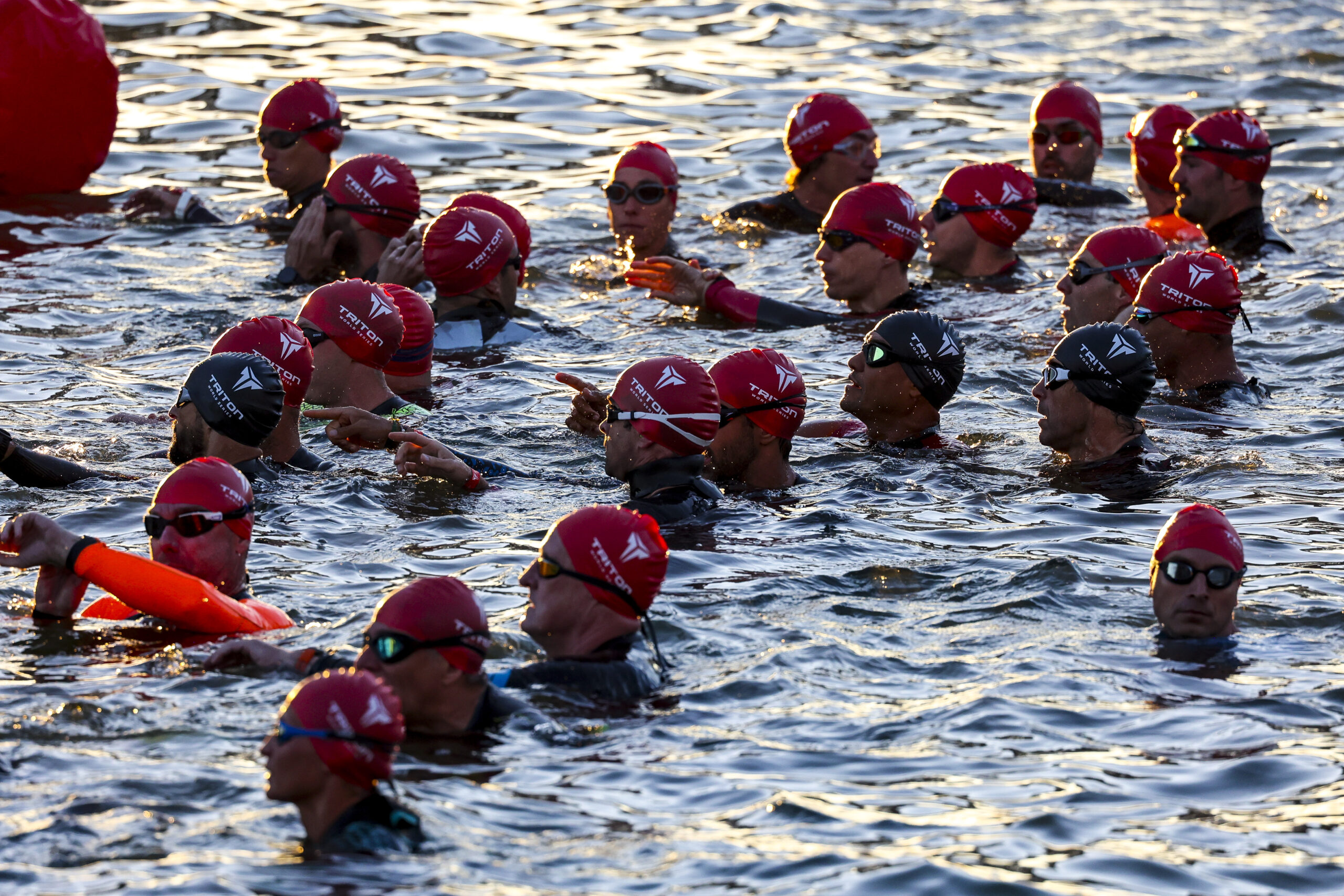
Triton, a global triathlon series, will hold its world championship in Portimão in the Algarve, Portugal, from October 24–26, as it expands its offerings around the world.
Having hosted events in Portugal and Brazil in 2024, those countries will remain on the schedule along with new events in the United Arab Emirates, China, Spain and Greece. The world championship in the Algarve will have a sprint, middle and long format along with a team corporate series final, kids race and country vs. country competition.
Mexico, Uruguay, Germany and the United States are lined up for future events as well. Paulo Passos Leite, founder and chairman of the board for Triton World Series, said the organization has plans to be in 30 countries with 60 races and 180 competitions worldwide in the next decade.
“It’s a typical destination product that attracts a lot of people,” Leite said. “Triathletes are amongst the highest average income in sports and they like to travel.”
One feature for Triton going forward is plans to have market protection clauses for destinations that host events. The non-compete clause is designed to keep destinations and local rights holders from competing for market share.
“I’ve been in the licensee’s shoes myself and one of the things that always bothered me very much is to have the same brand with competing races on the same weekend close by,” Leite said. “We’re cannibalizing each other.” Under the policy, of a destination hosts a Triton event in June, no destination in that country will do so in the same month.
Different Formats for Events
Triton has two race formats, Triton 1 and Triton 3. The Triton 1 is the traditional triathlon format while Triton 3 separates the swim, bike and run disciplines into a three-day event. Both formats have a short, middle and long distance competition. All races are designed with lap-based courses, which Triton believes helps local organizers with a minimal number of road closures and traffic disruptions during race weekends.
“Not only is the whole event much safer with the entire staff and safety crews being focused on one discipline, but we are able to better isolate the cycling element, which tends to bring the biggest safety issues and disruption of locals businesses and everyday life,” Leite said. “Additionally, you’re bringing people to the region for a longer period of time, since you’re not competing for one day, but you’re competing for three consecutive days.”
Leite added the design of a three-day format instead of a one-day triathlon allows for a broader usage of venues than finding one area that has spots for all three disciplines in a tighter area.
“If you have a fantastic place for the swim, but you can’t do (the race) because there’s no space for a transition zone or there’s no bike path, it’s not a problem,” he said. “You can actually have three different venues. And you can then offer what the region has best in terms of what the swim could be, in terms of what the bike can be, or the run can be. So it opens a whole new perspective on how to set up the event and the venues for the event to take place.”
New Ways to Win
Triton’s series also has a different way of deciding a winner than other triathlons. Under the Triton 3 race format, each discipline sees the winner get one point for first place, two for second and three points for third. At the end of the three disciplines, the athlete with the lowest score wins, making each discipline carry the same weight on the final result rather than having an advantage in one discipline that others cannot overcome.
“We’ll have the time and we’ll have the splits for you, but it’s a point system,” Leite said. “And what this does is that evens out the weight of each discipline.”
With the different way of having the event setup and scored, Leite said Triton has found initial early success that has led to this year’s expansion of events.
“When you’re talking to triathletes, you’re talking to a tribe and a very niche market,” he said. “So they’re reluctant in the beginning. Once they try it, they absolutely love it.”






























 Copyright © 2025 by Northstar Travel Media LLC. All Rights Reserved. 301 Route 17 N, Suite 1150, Rutherford, NJ 07070 USA | Telephone: (201) 902-2000
Copyright © 2025 by Northstar Travel Media LLC. All Rights Reserved. 301 Route 17 N, Suite 1150, Rutherford, NJ 07070 USA | Telephone: (201) 902-2000